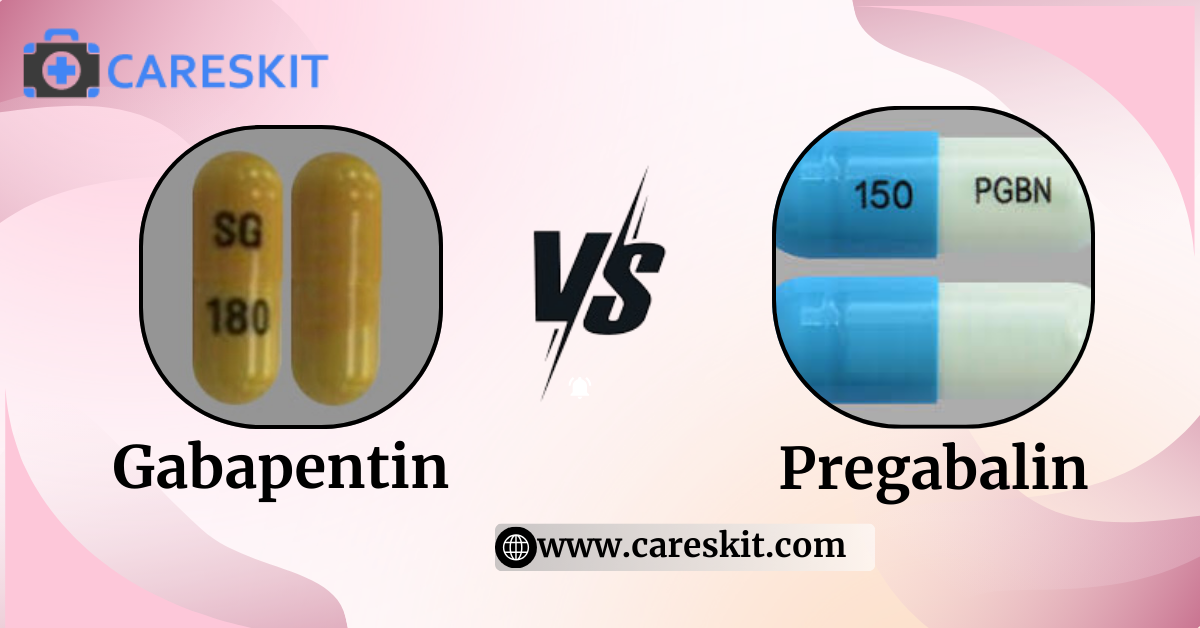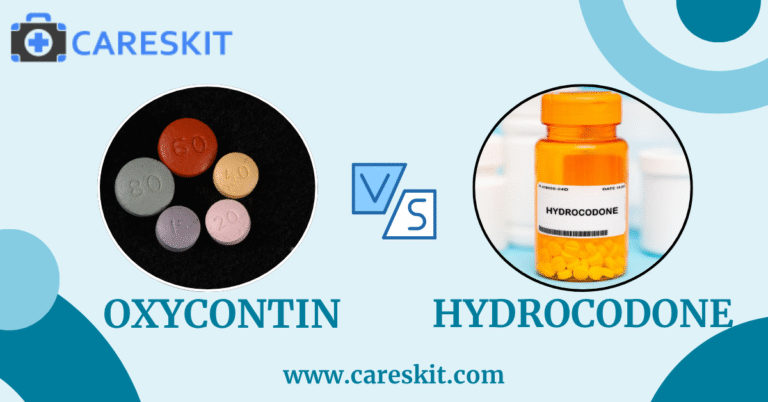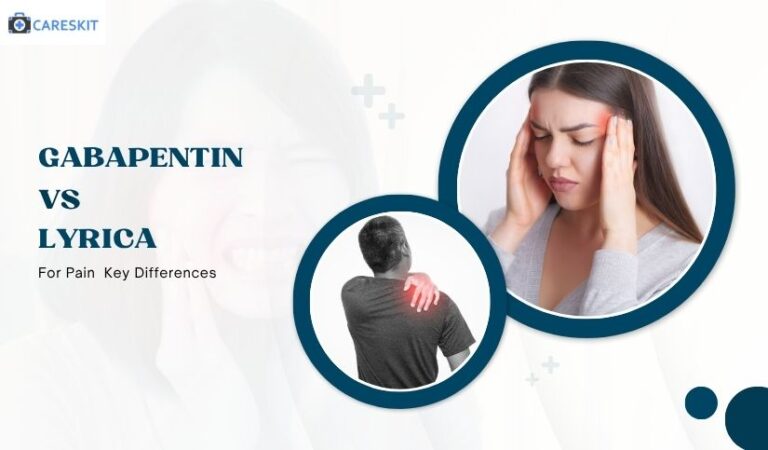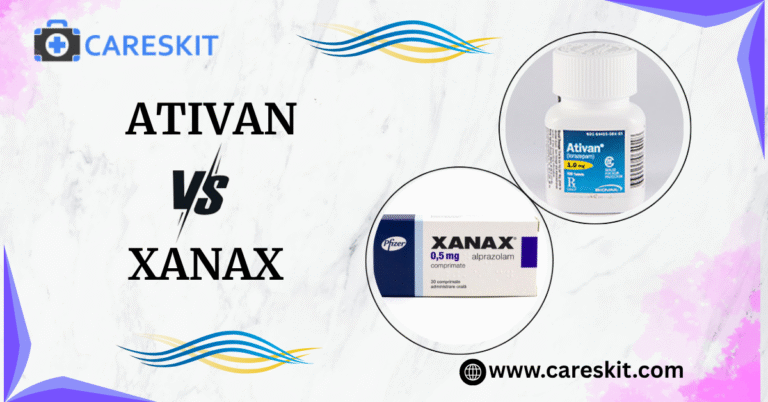Gabapentin vs Pregabalin: Side Effects, Dosages, & Differences
In the treatment of chronic nerve pain, epilepsy, or anxiety disorders, two drugs are generally used most of the time, which are Gabapentin and Pregabalin. Both drugs are of the same class and are used for the same mechanism of action, but have some variation in their efficacy, side effects, and use. Both Gabapentin and Pregabalin are highly effective, and Gabapentin is more effective in pain reduction than Pregabalin.
In this blog, we will highlight some of the similarities, differences between the two effective drugs, and we will discuss Gabapentin vs Pregabalin to assist you and your patients in making the correct choice in deciding which drug is ideal for them. Once you read this blog, if you have queries regarding pregabalin vs gabapentin: which is better, is gabapentin and pregabalin the same, and can you take gabapentin and pregabalin at the same time? Then, ask your healthcare provider for better treatment and your healthier life.
Understanding Gabapentin and Pregabalin
To understand Gabapentin and Pregabalin, both come under gabapentinoid drugs classes that are widely used to treat chronic nerve pain, seizures, and anxiety disorders. Most of the doctors prescribed both medications to relieve pain in severe conditions, they show different dosing, onset, and side effects.
Define Gabapentin
Gabapentin is sold under the brand name Neurotin, is an anticonvulsant prescribed for the treatment of epilepsy and neuropathic pain. Its function by changing the way that nerves send signals to the brain. Today, it is widely used to treat nerve pain, including postherpetic neuralgia and diabetic neuropathy, and off-label for fibromyalgia and anxiety.
Define Pregabalin
Pregabalin is sold under the brand name Lyrica is also an anticonvulsant prescribed for the treatment of nerve pain and sometimes for anxiety disorders. Like Gabapentin, it starts their work by attaching a calcium channel within the brain, helping to reduce commotion of pain. It relieves by stabilizing nerve impulses and is most often prescribed to relieve nerve pain, epilepsy, and generalized anxiety disorder.
Differences
Pregabalin and Gabapentin are antiepileptic drugs that are very effective in relieving severe pain like chronic nerve pain, epilepsy, or anxiety disorders, but they differ in cost, onset, and potency. Some major points are given to understand how both medications are different from each other.
- Both medications are FDA-approved for relieving pain but Pregabalin starts their work faster than Gabapentin.
- Both medications work similarly to reduce pain, but Pregabalin is absorbed quickly.
- Pregabalin is commonly known as a controlled substance, but in some states Gabapentin is a controlled substance due to its low abuse and dependence.
- Pregabalin is more effective than Gabapentin in some situations.
- Gabapentin and Pregabalin both medications share similar side effects after taking it for long-time, but few differences are there according to their working principle.
- Gabapentin is sold at low cost because it has great demand for pain relief but there is the new version that is Pregabalin which is sold at high cost in relation to Gabapentin.
Does Gabapentin Work Better Than Pregabalin?
When comparing Pregabalin and Gabapentin efficacy, the two medications are more efficacious in treating chronic nerve pain, chronic anxiety disorders, or epilepsy. Some tips on who performs better are provided below:
Treatment of Neuropathic Pain
Both Gabapentin and Pregabalin are widely prescribed for neuropathic pain but have differences in potency, absorption, and action onset. Some studies indicate that Pregabalin is very slightly more effective than Gabapentin for neuropathic pain, such as diabetic neuropathy and fibromyalgia.
Treatment for Sciatica
Gabapentin and pregabalin are both anticonvulsants and are commonly prescribed for pain caused by nerves, such as sciatica, whereas Pregabalin is likely to take effect more quickly and can have more regular pain relief than Gabapentin.
Treatment for anxiety
Pregabalin and Gabapentin are both off-label medications for anxiety or generalized anxiety disorder (GAD). In comparing both drugs, Pregabalin has a quicker onset and reliable absorption, and thus can be more effective in acute anxiety control.
Managing Nerve Pain
Gabapentin and Pregabalin belong to the class of medications called anticonvulsants and therefore are frequently prescribed to treat nerve pain due to diabetic neuropathy postherpetic neuralgia, and fibromyalgia. While they work similarly by binding the calcium channel in the central nervous system, and reduce the risk of nerve pain.
Working Mechanism of Gabapentin and Pregabalin
Both Pregabalin and Gabapentin bind to the alpha2-delta (α2δ) subunit of voltage-gated calcium channels (VGCCs) using a similar mechanism of action and are both primarily used in the central nervous system. Pregabalin has more affinity for binding to the α2δ subunit than Gabapentin, thus could account for the greater and faster effects.
Should Gabapentin and Pregabalin be taken together?
Gabapentin and Pregabalin together are normally not advised by the physician. Both of these are gabapentinoid medications and share the same mechanism of actions to suppress severe pain.
If both medications are taken simultaneously, it tends to raise the risk of such side effects as dizziness, drowsiness, mood swings, or suicidal tendencies, and allergic reactions. A doctor might in a rare instance prescribe both of them together simultaneously but only for short-term usage and using an off-label approach, which is rare and under close supervision.
Side Effects
Gabapentin and Pregabalin both medications come under anticonvulsant drug class. Due to its abuse, addiction and dependence properties both produce sane side effects that may be some common or serious depending on patients’ health conditions. Some common side effects may include:
- Dizziness
- Drowsiness
- Fatigue
- Memory issues
- Blurred vision
Gabapentin-specific side effect:
- Swelling in the hands/feet
- Nystagmus (eye movement issues)
- Weight gain (less than Pregabalin)
Pregabalin-specific side effects:
- Weight gain
- Euphoria, which contributes to its abuse potential
- Dry mouth
Warning and Precaution: Using Gabapentin or Pregabalin
Before using these medications you should know about its potency, side effects and major warnings and precautions. Some warning and precaution are given:
- Avoid combining both medications with other CNS depressants unless it is necessary. If required then use a lower effective dose.
- Do not suddenly stop medication without any suggestion from your healthcare provider.
- If you are consuming alcohol and other sedatives then avoid them while taking these medications.
- If you are changing these medications then consult your physicians immediately.
FAQs
Are Gabapentin and Pregabalin the same drug?
No Gabapentin and Pregabalin are not the same drug. They are in the same drug class and have a similar action or mechanism, but differ as to its potency, absorption, side effects, and disposition by the body.
Is Pregabalin more powerful than Gabapentin?
Pregabalin is stronger than Gabapentin. It binds tightly the alpha-2-delta subunit of calcium channel in the central nervous system and is effective at lower dose than Gabapentin.
Can I switch from Gabapentin to Pregabalin?
Yes, you can switch from Gabapentin to Pregabalin under your healthcare provider. Without any suggestion from your physician if you switch it may lead to many side effects like Dizziness and Drowsiness.
How long until each medication works?
Pregabalin start their work within 1 to 2 hours and Gabapentin may take 3 to 4 hours to complete their work properly depending upon dosage.
Which is safer for elderly patients?
Pregabalin is safer for elderly patients because both medications are used for elderly patients but Gabapentin may increase the risk of falls, confusion, and sedation.
Conclusion
After discussing all the similarities and differences we concluded that both medications have different properties and working principles are highly effective for the treatment of nerve pain. Selection between Gabapentin and Pregabalin should be dependent upon patients requirements, tolerance and the doctors recommendations.




